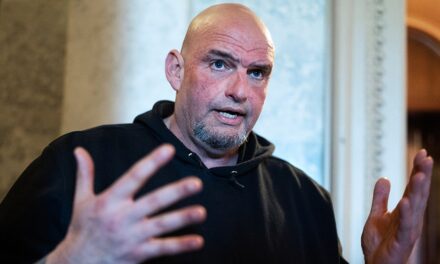In an audacious move that has garnered attention nationwide, the University of Wisconsin has announced a grant of nearly $136,000 to a student organization focused on sexual wellness and education. This funding is intended for programming that aims to provide a platform for ethical adult content, asserting the importance of informed and responsible engagement with sexuality among students. The initiative raises important questions about the intersection of education, consent, and the adult industry.
The student-led organization, known as the Sex Positive Student Union (SPSU), has been active on campus for several years, advocating for safer conversations around sex and sexuality. Its objectives include promoting healthy relationships, education about consent, and providing resources for sexual health, in what many regard as a progressive approach to sexual education.
Though the notion of a university supporting a group that produces or supports adult content might raise eyebrows, university officials are emphasizing the educational aspect of the programming. In a statement, they expressed confidence that this initiative will not only educate students about sexual wellness but will also empower them to make informed decisions regarding their sexual lives.
With a growing acceptance of open dialogues about sexuality and a shift in societal norms, the funding can be viewed as a reflective response to contemporary issues facing young adults. The SPSU aims to foster a community that not only respects different sexual identities but also provides safe spaces for discussions about consent, pleasure, and ethics in adult content consumption.
A portion of the grant will be used to create workshops and events featuring speakers and experts in the field of sex education and ethical pornography. These programs will aim to dispel myths, foster an understanding of the complexities surrounding sexual ethics, and address the persistent stigma associated with sexual exploration and education. Notably, ethical adult content is defined as material that is created transparently, where performers are treated fairly, and consent is prioritized.
Proponents of the initiative argue that traditional sexual education often fails to address modern realities and does not equip students with the necessary tools to navigate their sexual experiences responsibly. By funding a group that tackles these issues head-on, the university positions itself as a forward-thinking institution committed to its students’ comprehensive wellbeing.
Critics, however, caution that such funding could normalize or endorse the consumption of adult content, potentially blurring the lines between education and entertainment. Concerns regarding the influence of adult materials on younger audiences are widespread, and some argue that universities should not engage in what might be seen as a promotion of sexualized content.
Moreover, the decision has ignited discussions around how educational institutions approach the subject of sexuality, especially given that many college students are navigating their sexual identities for the first time. The fear of addiction, unrealistic expectations based on adult materials, and the challenges of consent are vital topics that many believe should be addressed in education.
The SPSU plans to allocate the funding not just to organize events but also to create accessible online resources that engage all students, including those who may prefer to learn in private. This effort includes the creation of workshops on topics such as healthy relationships, the dynamics of consent, and the critique of mainstream pornography.
This move by the University of Wisconsin comes in the wake of a national conversation around sexual health education in higher education. Many universities across the country have started to reevaluate their sexual education programs, as they recognize the need for more inclusive and realistic frameworks that reflect the current landscape of personal relationships and consent.
As expected, the reaction to the funding has been mixed, with some proponents championing the initiative as a forward-looking approach aimed at demystifying sex while providing clinical understanding. The previous taboos surrounding discussions of sex are increasingly being challenged in educational spheres, as there is a collective realization that ignorance can lead to detrimental consequences in students’ lives.
An essential goal of the SPSU and its programming is promoting healthier attitudes toward sexuality and reducing stigma related to adult content and sexual exploration. Advocates believe that providing students with accurate information can empower them to navigate their sexual lives responsibly and ethically.
Furthermore, as young adults increasingly turn to online platforms for sexual education and exploration, the question arises: how can educators guide students toward healthier choices? The SPSU aims to fill this gap by providing them with frameworks for critical thinking related to the consumption of adult content and the meanings that sex holds in their lives.
In an economy swamped with information, the challenge lies not in the availability of content but rather in discernment and understanding. Drawing upon expert insights, the SPSU seeks to encourage students to analyze the materials they encounter, questioning both the production ethics and the portrayals of intimacy presented therein.
The ethical approach to adult content emphasizes informed decision-making, and the organization’s programming seeks to ensure that students are equipped with the language and tools needed to engage thoughtfully with sexual media. Workshops and events promised in the SPSU’s initiative are indicative of a larger shift in understanding the role of education in shaping sexual attitudes and behaviors.
Such initiatives could potentially influence sexual health policies on campuses nationwide, as more institutions recognize the importance of creating supportive environments where students can discuss their experiences. This highlights a generational change in how sexuality is perceived and discussed within our society. The increase in awareness and the need for sexual education that addresses not only the mechanics but also the ethics of sexual experiences seems more crucial than ever.
The success of this program could pave the way for similar initiatives at other institutions, as universities grapple with the best strategies to address modern sexual issues. As educators and administrators continue to navigate the challenges of discussing sensitive topics, the commitment demonstrated by the University of Wisconsin serves as a critical example of how institutions can support informed and open discussions about sexual health, consent, and ethical considerations.
The investment in the SPSU signifies a recognition that sexual wellness is a vital component of overall health, and by allocating substantial resources, the University of Wisconsin is making a bold statement about its commitment to student welfare. The collaboration of universities with student organizations focused on such progressive topics might well be the future of higher education, necessitating a reevaluation of how sexual education traditionally takes shape.
In conclusion, the funding provided to the SPSU aligns with a growing movement towards enhancing sexual wellness education and ethical consumption of adult content within academic institutions. As the conversation continues, the hope is that these initiatives not only foster a healthy understanding of sexuality but also contribute to a more open, informed, and responsible generation of individuals ready to navigate the complexities of their sexual lives.
































